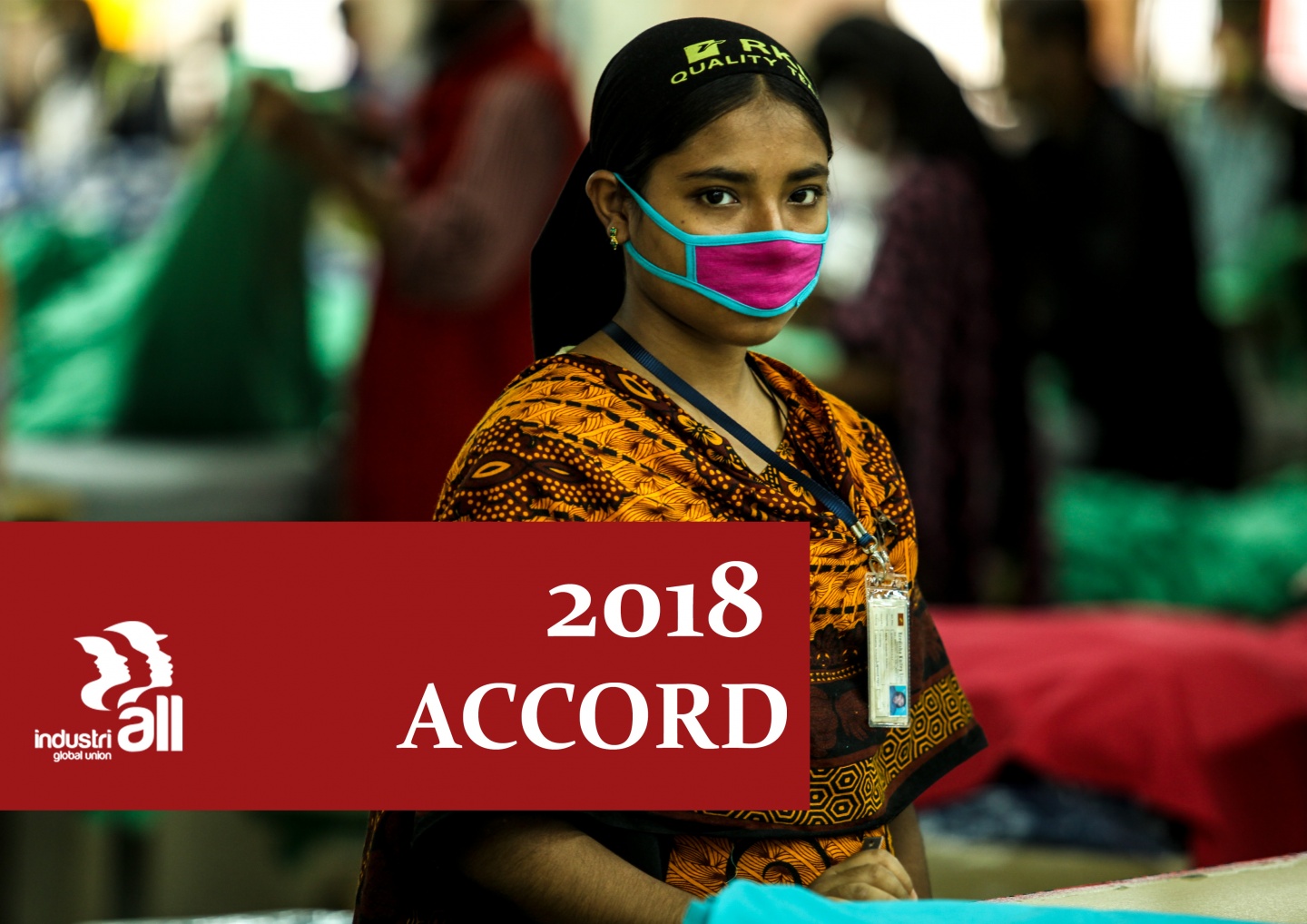22 January, 2018IndustriALL Global Union and UNI Global Union have reached a US$2.3 million settlement with a multinational apparel brand to remedy life-threatening workplace hazards. The settlement, reached through an arbitration process under the legally-binding Bangladesh Accord for Fire and Building Safety, represents one of the largest payments made by a brand to remedy workplace dangers in its supply chain.
The brand, which cannot be named under the terms of the settlement, has agreed to pay $2 million towards remediation of more than 150 garment factories in Bangladesh.
The apparel maker will contribute a further US$300,000 into IndustriALL and UNI’s joint Supply Chain Worker Support Fund, established to support the work of the global unions to improve pay and conditions for workers in global supply chains.
The global unions brought the case to the Permanent Court of Arbitration arguing that the brand did not require its factories to remedy hazards in a timely manner—leaving thousands of workers in dangerous conditions. The unions also charged that the brand did not ensure that it was financially feasible for its factories to fix ongoing safety issues, as required by the Accord.
At the time of the case’s filing in October 2016, none of the brand’s known supplier factories had completed the required remediations, and all of them had at least one high risk safety hazard which had not been fixed. These included factories lacking fire alarm and sprinkler systems, lacking fire doors, and not separating flammable materials from the factories’ boilers.
The unions’ claim for arbitration spurred several of the brand’s contracted factories towards better progress—one went from a remediation rate of roughly 50 percent in October 2016 to more than 90 percent in October 2017. However, many other factories supplying the brand continue to lag far behind, with remediation rates hovering near 50 percent and serious structural and fire safety issues left unresolved.
All necessary safety improvements need to be completed by the Accord’s expiration in May 2018.
IndustriALL’s general secretary, Valter Sanches, said:
“This settlement shows that the Bangladesh Accord works. It is proof that legally-binding mechanisms can hold multinational companies to account. We are glad that the brand in question is now taking seriously its responsibility for the safety of its supplier factories in Bangladesh. Their financial commitment serves as an example for other brands to follow.”
Christy Hoffman, UNI Global Union’s Deputy General Secretary, stated:
“Under the Accord, brands must shoulder some of the financial responsibility for fixing the Bangladeshi factories that manufacture their products, and this agreement shows that we are actively enforcing these Accord commitments.
“The settlement makes real resources available to over 150 factories so they can finally make the necessary repairs that were needed years ago. We will continue pushing to make sure that all brands contribute their fair share to make work safer in Bangladesh.”
In December 2017, IndustriALL and UNI settled another arbitration case with a global brand, also administered by the Permanent Court of Arbitration at The Hague. The combined number of factories covered by both settlements is well over 200.
Both settlements were made possible by pro bono representation provided to the two Global Unions by Marney Cheek and her team at Covington & Burling.
The Accord, which covers 2.5 million workers in Bangladesh’s ready-made garment industry, was established by IndustriALL and UNI in 2013 following the Rana Plaza disaster that killed over 1,100 garment workers and injured more than 2,000. It is the first agreement with a legally-binding mandate requiring fashion brands to require their contractors to eliminate fire, structural, and electrical safety issues.
Accord inspectors have so far carried out inspections on more than 1,800 factories supplying over 200 brands, identifying over 118,500 fire, electrical, and structural hazards.
83 per cent of workplace dangers identified in the Accord’s original round of inspections have been remediated, and 500 Accord factories have completed 90 percent or more of the necessary fixes.
A second Accord was signed in June 2017. It goes into effect when the original agreement expires in May 2018 and extends the Accord’s protections until 31 May 2021, unless a joint monitoring committee (comprised of Accord brand signatories, Accord trade union signatories, the Bangladesh Garment Manufacturers and Exporters Association (BGMEA), the International Labor Organization (ILO), and the Government of Bangladesh) unanimously agrees that a set of rigorous conditions for a handover to a national regulatory body have been met prior to then.
